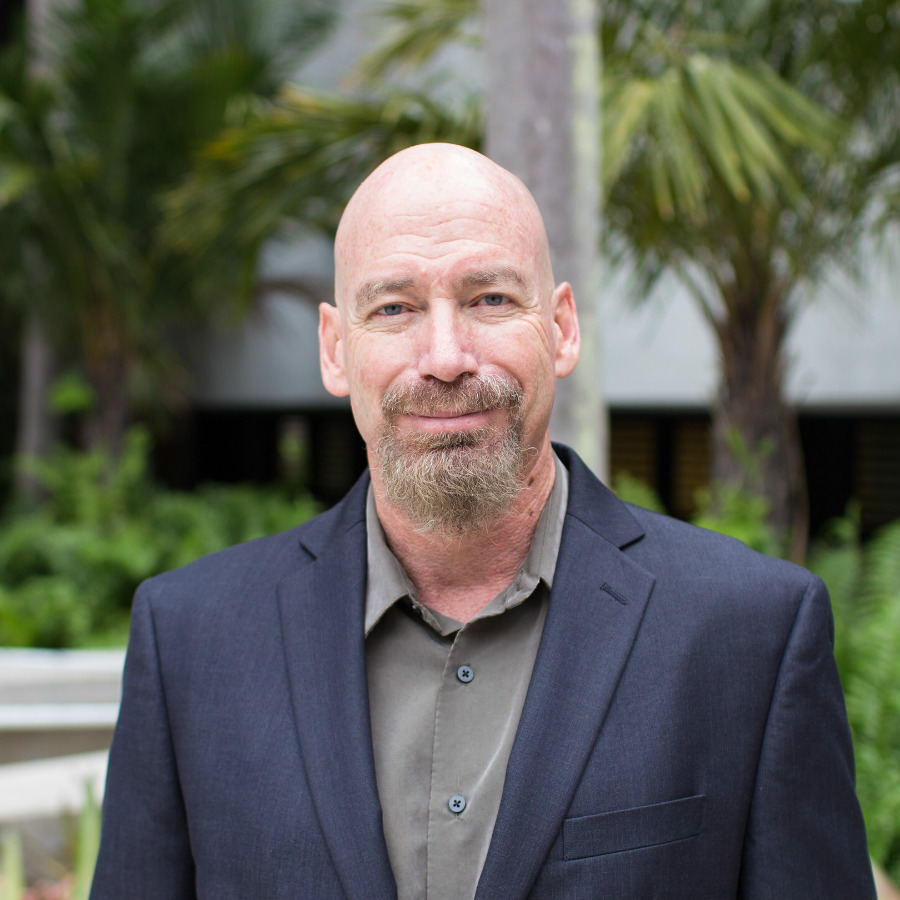Pete Markowitz wears many hats at FIU; a Professor of Physics, an Honors College Fellow, and an integral member of the FIU ADVANCE team.

He’s been a Golden Panther for twenty-five years. He spent his first five years at FIU in a “bridge position,” meaning he was both a faculty member and a research scientist at the Thomas Jefferson National Accelerator Facility, a US National Laboratory commonly referred to as Jefferson Lab. Jefferson Lab’s electron accelerator facilitates precise studies of the nature of matter. “We take apart atoms, look inside nuclei at quarks,” says Markowitz. “From this, we can try and figure out how other exotic things in the universe interact or what makes dark energy and dark matter.”
Markowitz was drawn to the field of physics, partly because the field is challenging, and “partly because you can play with really big toys,” he says with a grin. Not only does he still regularly work with at Jefferson Lab, but has had the opportunity to travel to particle accelerators all over the planet, in places like Japan, Switzerland, France, Germany, and the Netherlands.
He’s also a Fellow of the Honors College. Classes in the Honors College, of which he teaches at least one every semester, are required to be interdisciplinary in nature. In his most recent class, he shared teaching responsibilities with professors from international relations and theatre, as well as with a practicing immigration attorney. “We teach the students about problem solving from different perspectives. When you’re asking questions like ‘What is knowledge?’ it’s beneficial for them to consider a humanities viewpoint, an anthropological viewpoint, and a scientific viewpoint.”
In the spring 2020 semester, Markowitz will help lead his students through a series of thought exercises called Reacting to the Past, where they will tackle historical problems such as how to stop the 1854 London cholera epidemic or how to write and pass the 1935 Social Security Act. Students have to learn valuable critical thinking and writing skills and apply them in persuading and collaborating with others, which are valuable skills, according to Markowitz. “I get to give students information and tools that are and will be useful in a number of different situations, not just in this particular class.”
Markowitz is also interested in promoting diversity and inclusion on campus, and as such works closely with FIU ADVANCE, a five-year $3.2 million Institutional Transformation grant awarded in 2016 by the National Science Foundation to develop strategies to increase the number of women and minority professors in STEM and the social and behavioral sciences at FIU.
He is the longest serving member of the STRIDE (Strategies and Tactics for Recruiting to Increase Diversity and Excellence) committee, which offers workshops for faculty members serving on search committees or those who want to be eligible to serve. “I was recruited specifically by Suzanna Rose, the associate vice provost of the Office to Advance Women, Equity & Diversity. I said yes because I was interested in bettering our work climate.”
Markowitz is deeply invested in the success of FIU. “FIU has become even more focused on student success, but students can’t be successful if their professors aren’t successful. I don’t think admitting I don’t know something to my students will affect their view of me, but I know that’s not necessarily the same experience for all faculty members.”
He appreciates the fact that STRIDE workshops use case studies and examples drawn from interviews with FIU faculty. “These are common problems across all universities, but by using FIU stories to talk about issues, the conversations become more personal and meaningful.”
Markowitz believes STRIDE has contributed to a more universal awareness of diversity and equity issues on campus. The next challenge, then is how is FIU, as a university, going to adapt behavior to better promote diversity and inclusion. The answer lies in part in the Bystander Leadership Program (BLP), an educational program for faculty members that is intended to move participants from “insight” to “action” to increase inclusion among faculty as well as to address gender and race bias within faculty interactions in positive and prosocial ways.
Unsurprisingly, he is also a member of the BLP committee. “STRIDE was making progress in making people examine their thoughts and biases, but Bystander offered the chance to do something even stronger by making people examine their actions,” he says. “Bystander lets attendees figure out how to change their behavior in their environment.”
BLP launched in Fall 2018, and Markowitz believes that Bystander has already had positive results. “Each day of the workshop, the cohort of attendees develops into a small community. They know each other and have a common shared experience.” He says that attendees have come up to him to say they’ve had the opportunity to practice an intervention.
“I like that we’re bringing people together across disciplines, and in a way that’s designed to make the university a better place for us all.”
